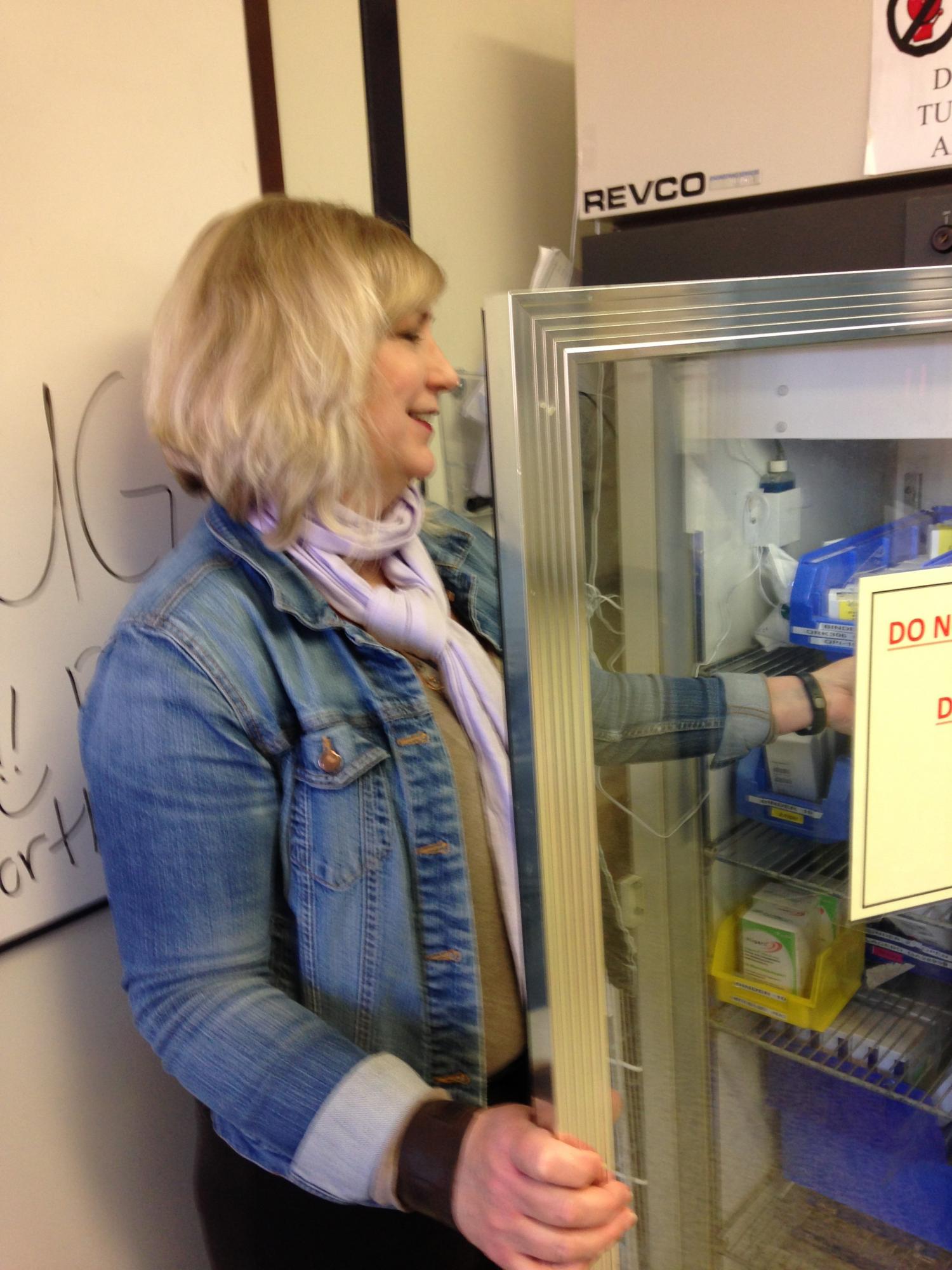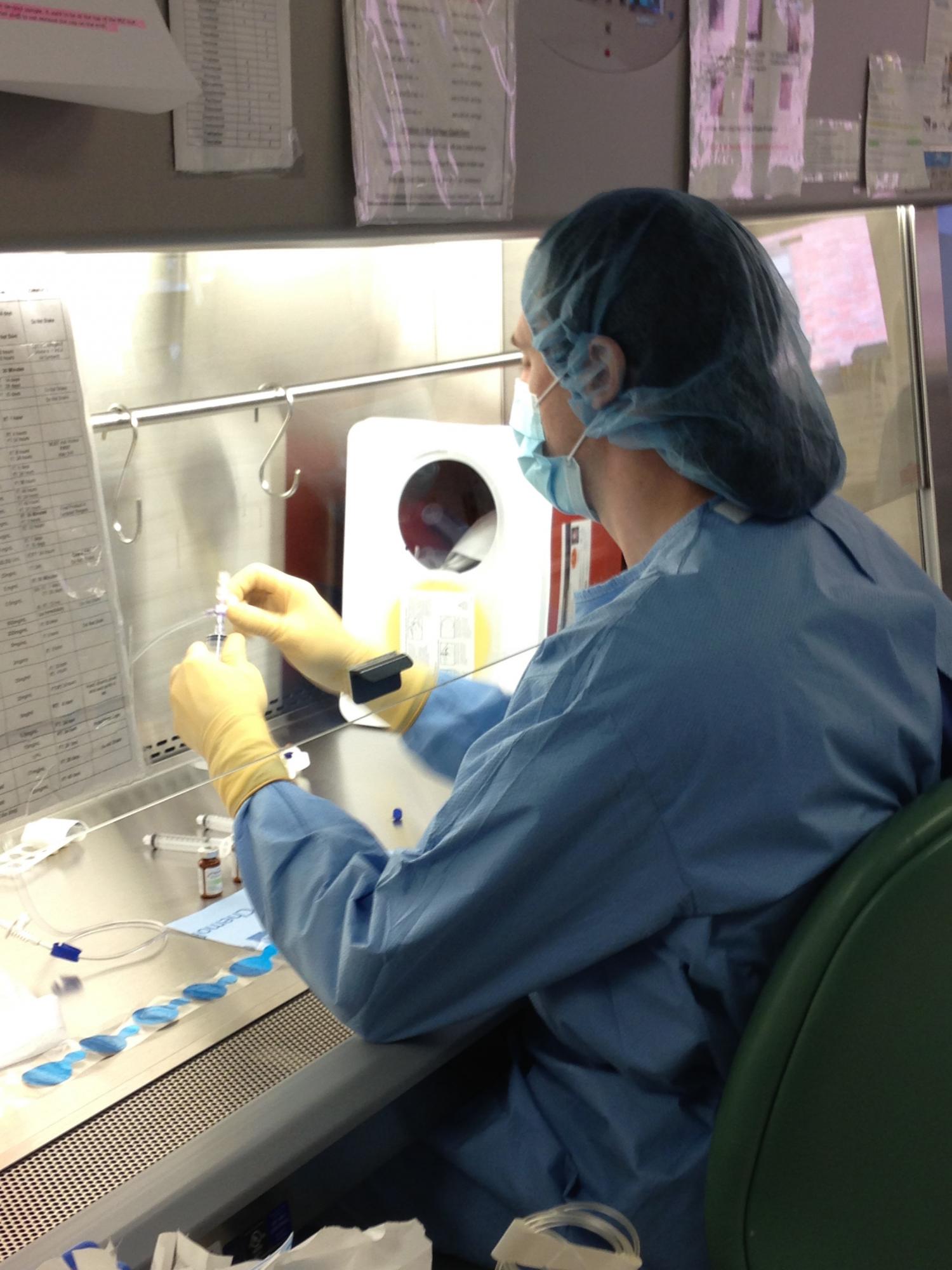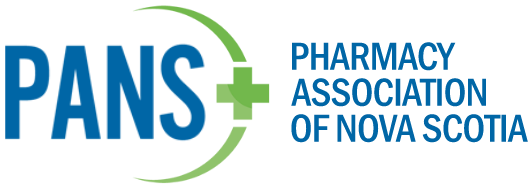There are currently 135 clinical drug trials being supported by pharmacy at Capital Health in Halifax. Pharmacy Technician Kim Bruce-Payne is responsible for 55 of them. The drugs she is responsible for are mostly for solid state cancers, such as breast cancer, testicular cancers, brain tumors, colorectal cancer, and uterine cancer.
Organization is key for Kim. It’s her job to make sure that all the protocols are written down (including standard of care). She maintains all the records for “her studies.” Which is no small feat. Records must be kept for 25 years after the closure of a study. Patients are followed until they die. There is one patient who started on a drug in 2008 and they are still on this medication.
Although most of her work involves reports and emails, she never gets to meet her patients, every patient is a person to her, with a family and with hopes and dreams.
“It’s hard for me to refer to them as the human subject,” she says, which is the terminology used in clinical drug trials.
There are complicated processes involved in every drug trial which include access the drug, insuring that the drug stays the right temperature (cold chain), and ethics approval. This is work that Kim does. If the cold train breaks, this could mean a couple of days’ worth of extra work for Kim.
Kim is quick to point out that the number one priority for her patients is their safety.
The Research Ethics Board meets every Monday to review drug trials. Every clinical trial that is conducted must meet the approval of an Ethics Review Board. This is to ensure every patient that is treated in a trial is treated ethically, fairly, and safely. Every patient must consent to their participation in the trial by way of signing an informed consent document.
In fact, there are a number of regulatory bodies that govern clinical trials.
“They dictate the rules of the game – if we don’t follow those rules, we can’t be in the game.”
Some of the rules are simple but very import.
“When we make a mistake when writing on a chart or form we can’t use whiteout,” she says. “We have to cross out the error and sign and date it.” This is to ensure that there are no “fudging of the numbers.”
In a drug trial, the pharmacy team is responsible for the following:
- Double-checked dispensing
- Expert admixed/sterile preparations (Highly trained IV Techs, chemotherapies)
- On-Call
- Secure, temperate storage of medications (thermometer calibration/thermometers actually come with expiration dates and need to be replaced every year or so).
Another service that falls under the drug trial team is Compassionate Medications. These are trial medications that are supplied to patients who are not eligible for the drug trial but their doctor has made an argument that the patient should have the drug. The drug comes from the manufacture specifically for the patient, an application process must be completed and accepted. In these cases, there are often also social workers and nurses advocating on behalf of the patient to receive the drug, as well as the physicians involved.
There are may reasons why patients agree to participate in drug trials.
“Some sign up because they have tried everything else, others are doing for their children,” says Kim. For example, for those carrying the BRCA gene, they want to see a better treatment for breast cancer for their children and have signed up for clinical trials.
“Often the criteria for participating in a trial is a minimum life expectancy,” says Kim. “But that is not always the case.”
However, it is learning about the patients who have a better quality of life thanks to these drug trials is why Kim continues make the hour-long drive into work every morning.
“We had a metastatic patient with prostate cancer who had been bed-ridden who was able to play 18 holes of golf,” says Kim.
Patients successes and seeing an improvement in their quality of life is Kim’s favourite thing about her job.
Her least favourite thing about her job?
“Temperature deviations.”


